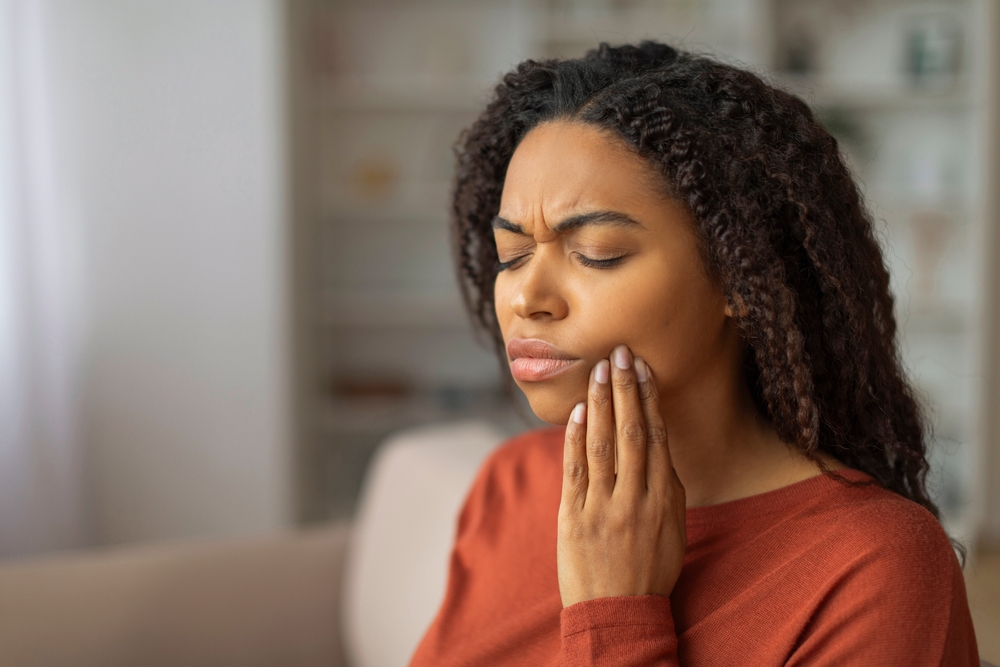Last Updated:
October 14th, 2025
Oral Health Issues Caused by Addiction
Addiction is often described as an invisible illness, but sometimes, the damage starts showing in places you wouldn’t expect. Oral health issues are among the most visible signs of long-term substance use, and yet they’re also some of the most neglected. If you’re struggling with drug or alcohol addiction, changes in your teeth and gums can be slow, messy and painful. And because it doesn’t always feel urgent, many people don’t realise how deeply their substance abuse is affecting their mouth until the damage is done. If you’re avoiding the dentist or living with the pain in silence, it is important to understand how addiction causes oral health issues and where to get help.
What is meant by “oral health issues’’?
Oral health issues are any problems that affect your teeth, gums, tongue or the inside of your mouth. They can range from mild discomfort to serious infections and if left untreated, can impact your ability to eat, speak, sleep or even smile. For people struggling with addiction, oral health issues are often common, painful and embarrassing and they can be the first visible sign that something’s wrong.
Common oral health issues include tooth decay, bleeding or swollen gums, dry mouth, eroded enamel, persistent bad breath, mouth sores and pain or sensitivity when eating. Some people may also lose teeth or develop infections and receding gums that affect their smile and even change the way their face looks.
These issues can be caused by poor hygiene, lack of access to dental care, ageing, diet, medical conditions or medication side effects. They can also develop as a result of long-term habits like smoking, clenching your jaw or skipping dental appointments. Sometimes, the root cause of oral health issues is easy to treat, but they can also be part of a much more complex issue.
Addiction is one complex cause of oral health issues that is not talked about as much as other symptoms. If you are suffering from substance-related issues, effective medical and rehab treatment is required to address the underlying alcohol or drug addiction and the harm it has caused.
Struggling with an addiction? If you are ready to seek help, reach out to us today, and a member of our compassionate team will help you find the best option for starting your recovery journey.
How can addiction cause oral health issues?
Addiction can lead to serious oral health issues, even if your teeth and mouth were fine when you first started drinking or taking drugs. Substances may damage your teeth, gums and soft tissue directly or create conditions that make oral health issues far more likely to develop.
One of the most common effects of addiction is dry mouth, which starves your teeth and gums of the saliva that normally protects them. Without this defence, bacteria can multiply quickly, leading to tooth decay, gum inflammation and mouth sores. Drugs like methamphetamine, in particular, are known to cause rapid dental decline, sometimes referred to as “meth mouth”, leading to crumbling teeth, sores and visible infection.
Other stimulants like cocaine and ecstasy, and some ADHD medicines, can cause you to clench your jaw or grind your teeth, wearing down your enamel and increasing the risk of tooth decay. Cocaine can also cause ulcers and burns if you rub it on your gums or snort it frequently.
Alcohol can be just as damaging as drugs, and people who drink heavily often develop what is known as alcoholic teeth. These are yellowed, brittle or crumbling teeth caused by enamel erosion, dehydration and acid exposure from vomiting. Alcohol can also lead to alcohol mood swings that make it harder to keep up with oral hygiene routines.
Opioids, including heroin and prescription painkillers, can also cause a whole range of oral health issues, including dry mouth, tooth decay, mouth sores and gum disease. Many people addicted to opioids also clench or grind their teeth, skip dental hygiene and struggle with poor nutrition, all of which accelerate the damage. Over time, these effects can lead to tooth loss, abscesses and infections that become increasingly difficult to treat.
What are the common oral health issues to look out for?
Recognising the harm that addiction is causing to your mouth can help you get the treatment you need before the damage becomes irreversible. Here are some of the most common oral health symptoms people experience when struggling with substance use:
Can oral health issues become dangerous if left unaddressed?
Ignoring oral health issues caused by substance abuse can have serious and even life-threatening consequences. Even a small cavity can become a raging infection if left untreated. A bit of minor gum bleeding can turn into full-blown gum disease that eats away at the tissue and bone holding your teeth in place.
Similarly, unhealed mouth sores can become open wounds that allow bacteria into your bloodstream. If you’re using substances that weaken your immune system, your body won’t be able to protect you from infections which can spread into your jaw, bloodstream or even your brain.
Living with oral health issues can also take a major emotional toll. Dental problems can damage your confidence, make you feel ashamed and leave you isolated. This can stop you from seeking help from both the dentist and from recovery services, keeping you trapped in substance use and suffering.
What should I do if I notice oral health issues in myself or a loved one?
If oral health issues are affecting your life, you deserve support. At Addiction Helper, we have guided countless people in getting the necessary knowledge and treatment. Contact us today, and we will do everything we can to get you on the road to a full and lasting recovery.
Our compassionate team are ready and available to take your call, and guide you towards lasting the lasting addiction recovery you deserve.



